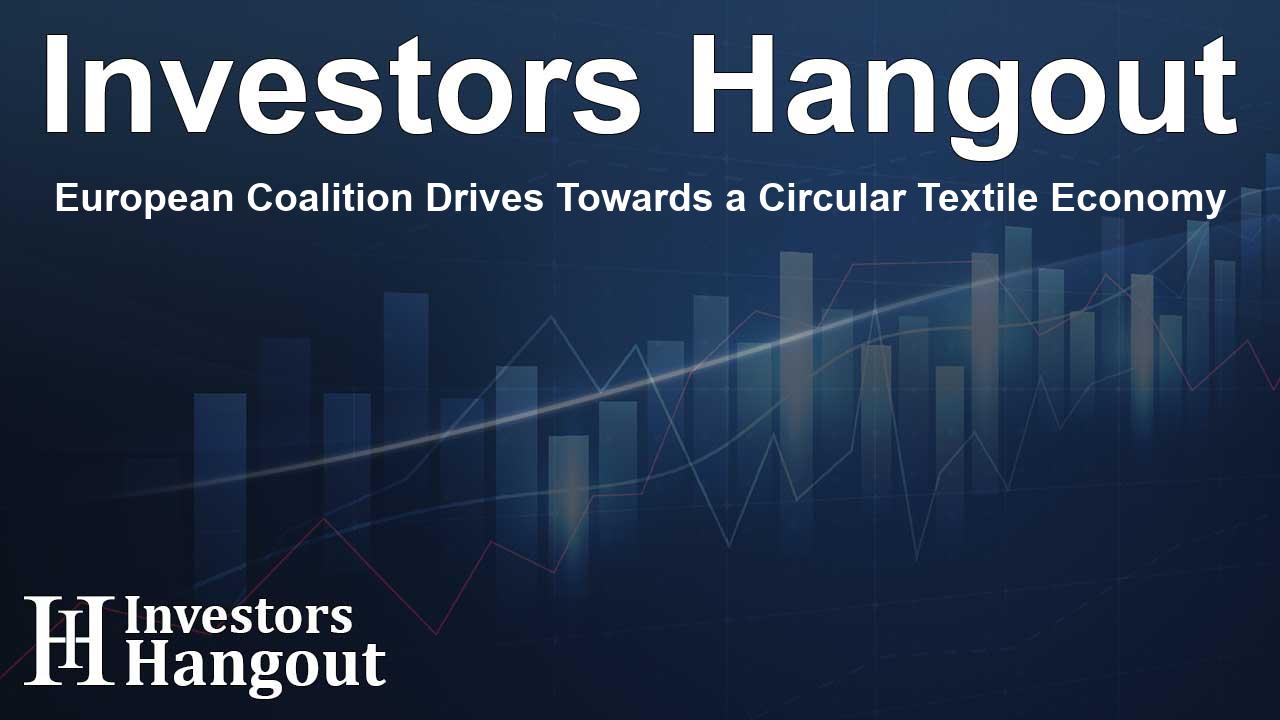European Coalition Drives Towards a Circular Textile Economy

European Coalition Drives Toward a Circular Textile Economy
The European Circular Textile Coalition has embarked on a mission to transform the textile industry into a sustainable, circular economy. In a world increasingly aware of the environmental impact of waste, this coalition highlights the urgent need for change, presenting a manifesto designed to turn post-consumer textile waste into a driver of green jobs and innovation.
Significance of Textile Waste
With Europe producing approximately 12.6 million tonnes of textile waste each year, the necessity for an organized strategy for managing this waste has never been more crucial. Currently, a vast majority of this waste ends up in landfills or is incinerated, with only a meager 1% being recycled into new garments. This alarming statistic underscores how vital the coalition's goals are and why immediate action is essential.
The Manifesto's Core Message
The manifesto also emphasizes that viewing textile waste as an inevitability is outdated. Instead, it presents an opportunity for ingenuity and problem-solving. The coalition urges regulatory bodies to align their ambitions with actual investment in recycling and manufacturing systems.
Three Policy Pillars for Change
To galvanize this movement, the coalition has outlined three policy pillars essential for fostering a robust circular textile economy:
- Ensure a competitive European textile chain, which will incentivize bringing textile production back to Europe, thereby maintaining higher environmental and labor standards.
- Prioritize high-quality textile-to-textile recycling, utilizing post-consumer textile waste as the primary source for new textiles.
- Establish mandatory recycled content in textiles, with realistic and ambitious goals to be implemented progressively.
The Role of Reju
Reju, a key player within this coalition, highlights the importance of collaboration in creating transformative change. Patrik Frisk, the CEO of Reju, articulates the belief that while voluntary measures have their place, they are unfortunately insufficient. To genuinely promote the demand for recycled materials, binding standards must be cultivated.
Advocacy and Engagement
The coalition is planning to launch an advocacy tour aiming to engage and collaborate with policymakers across Europe. They invite various stakeholders in the textile supply chain to join this crucial initiative. As we stand at a critical point, the message is clear: it is time to act. "When a world without waste is possible, we cannot afford to wait!"
Welcome to the Coalition
The coalition comprises a diverse array of businesses in the textile value chain including Reju, Resortecs, COLEO, Tissage de Charlieu, and many more committed organizations.
About Reju
Reju is dedicated to developing innovative strategies for regenerating polyester textiles and addressing post-consumer PET waste. Their mission centers around creating a circular recycling system for textiles through advanced materials technology. Backed by Technip Energies and leveraging expertise from IBM Research, Reju strives to unlock infinite possibilities from finite resources. For those interested in learning more, visit their website.
Frequently Asked Questions
What is the aim of the European Circular Textile Coalition?
The coalition seeks to promote a fully circular textile economy by addressing textile waste and advocating for regulatory changes that support sustainability.
Why is textile waste a significant issue?
Textile waste poses major environmental challenges, with millions of tons discarded each year, emphasizing the need for effective recycling solutions.
What are the three policy pillars proposed by the coalition?
The proposed policy pillars include ensuring a competitive European textile chain, prioritizing textile recycling, and mandating recycled content in textiles.
Who is involved in the coalition?
The coalition consists of companies throughout the textile value chain, including Reju, Resortecs, and several others committed to advancing sustainable practices.
How can businesses join the initiative?
Businesses interested in participating in this initiative can reach out to the coalition to learn how they can contribute to building a circular textile economy.
About The Author
Contact Dominic Sanders privately here. Or send an email with ATTN: Dominic Sanders as the subject to contact@investorshangout.com.
About Investors Hangout
Investors Hangout is a leading online stock forum for financial discussion and learning, offering a wide range of free tools and resources. It draws in traders of all levels, who exchange market knowledge, investigate trading tactics, and keep an eye on industry developments in real time. Featuring financial articles, stock message boards, quotes, charts, company profiles, and live news updates. Through cooperative learning and a wealth of informational resources, it helps users from novices creating their first portfolios to experts honing their techniques. Join Investors Hangout today: https://investorshangout.com/
The content of this article is based on factual, publicly available information and does not represent legal, financial, or investment advice. Investors Hangout does not offer financial advice, and the author is not a licensed financial advisor. Consult a qualified advisor before making any financial or investment decisions based on this article. This article should not be considered advice to purchase, sell, or hold any securities or other investments. If any of the material provided here is inaccurate, please contact us for corrections.
